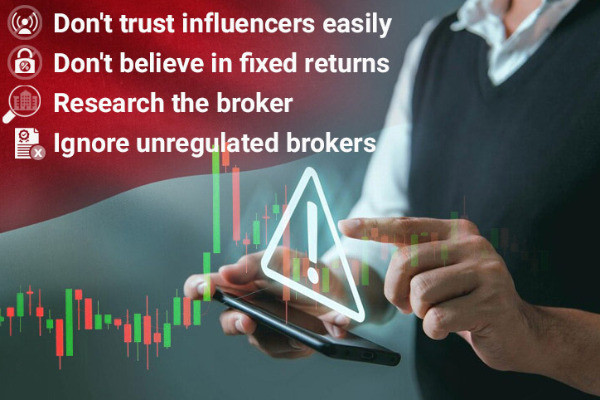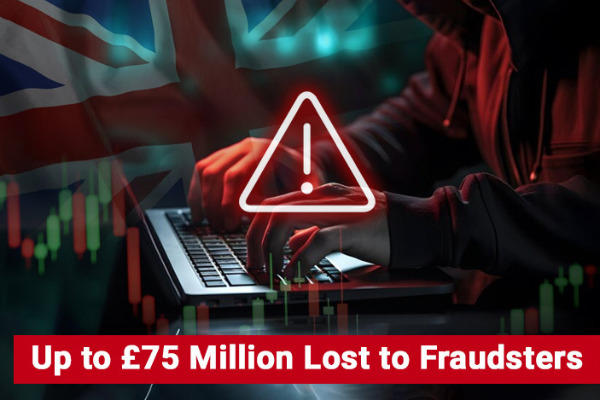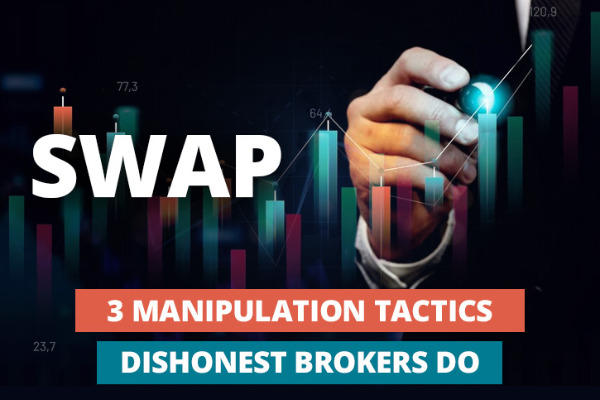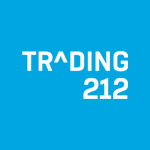The forex market is not without risk and sometimes problematic brokers can potentially harm your account. If you're registered with such broker, deal with them with these 6 easy steps.
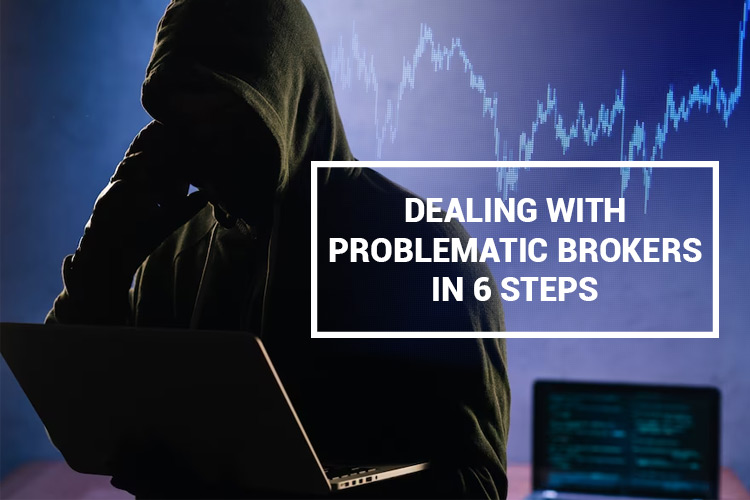
Some traders have the nerve to call a broker a scam before they even check the facts or figure out what is happening on the market. It can be understood that perhaps, these traders are afraid to lose their money and thus become susceptible to unreasonable thoughts. That being said, there's also the possibility that the broker is manipulating their clients' orders, especially if we're talking about bucket shop brokers.
There are several ways of dealing with problematic brokers. Such as:
- Determine the problem: Traders should understand what problems they are experiencing.
- Ensure you follow the rules: Pay attention before blaming the broker.
- Contact customer support: A good broker always cares about their trader's needs.
- Consult with another trader: There is something to learn from other people's experiences.
- Take action: Close the account if the broker is problematic.
- Find a better broker: Get a trusted broker with better regulation.
Most of the time, the problem is not the broker but the trader's lack of understanding of the rules. To avoid these, it's better to practice these 6 steps to deal with the issues wisely.
See Also:
1. Determine the Problem
There are plenty of things that may cause brokers to be called problematic. Some of them are interrupted trading orders, slippages, requotes, spread widening, and withdrawal issues. In fact, most of these issues can be caused by market volatility.
In the case of pending withdrawal, there are some things that one should pay attention to. The process to send the money from the trading account to the client's account might be due to in the withdrawal process or simply because the client is not complying with certain withdrawal rules.
2. Make Sure You Have Followed the Rules
It is best to evaluate the frequency and the timing when things go wrong. For instance, if it happens only when things occur before, during, or after a big event in the market. Other than that, certain problems can also appear due to restrictions on scalping, hedging, or other strategies.
For instance, a broker won't let clients apply scalping for less than 5 minutes. If a trader is known to do so, the profits will be canceled. If you unknowingly violate the rule and complain about canceled profits, then you won't be in the right place to criticize the broker. Hence, pay attention to all of your broker's rules and evaluate all the requirements before blaming the broker.
What if the problem is related to withdrawal? Often, a broker will not approve withdrawal processes from unverified accounts, accounts with floating positions, accounts whose balance is less than the minimum standard, or broker bonus accounts.
3. Contact the Customer Support
Traders are encouraged to ask the broker questions if, after an evaluation, there is no particular issue that should have been affecting their account. It is best to provide several proofs that could support the argument, such as a screenshot that shows a requote problem during a normal market condition or evidence to prove that all withdrawal rules have been fulfilled.
A good broker will always respond to client's questions and needs and provide the best solutions to resolve problems. So, be aware if your broker's support is difficult to contact or gives basic answers that do not solve your problems. Be very careful if the broker refuses to do this. It might be a scam broker.
4. Consult with Other Traders
There's no harm in doing independent research. By doing so, a trader can compare their current situation to other traders from other brokers, so they can discover if general standards can normalize their problems. A good trader will actively find a way to get profit as safely as possible. When things seem suspicious, one could share their situation in a forum. That way, other traders might be willing to share their experiences dealing with similar problems. Make sure to join a legit forum because there are plenty of scam groups.
5. Take Immediate Action (If the Broker is Proven to be Problematic)
After doing research and asking for suggestions online, traders should be able to take a conclusion and determine whether their issues are caused by problematic brokers or not. When the result proves that the broker is indeed suspicious, traders should immediately withdraw all their remaining funds and close their accounts.
If the broker is under a certain regulatory agency, you can report the issues to the institution or even ask for compensation if your condition meets the criteria. For good measure, you could share this experience in forums to warn other traders.
6. Find a Better Broker
Learn from your previous mistake and find a better broker with credible service and reliable support. Taking other traders' recommendations into account is also a good way to start your search for a better broker. That way, you can be ive of the number of Forex brokers available before opening an account.
There are several ways of finding a better broker. But, the most common method is probably based on the broker's regulations, including ASIC, FSA, CySec, FCA, and many more.
Even though the forex market is unpredictable and risky, trading with a good broker can eliminate one uncertainty so you don't have to worry about having troubles with problematic brokers. Instead, you can focus on minimizing the risks that come with the currency market.

 Dedicated FREE FOREX VPS
Dedicated FREE FOREX VPS Free FOREX Virtual Private Server
Free FOREX Virtual Private Server MT4 Demo Contest, Get $500
MT4 Demo Contest, Get $500 Sign Up for an Account, Claim 60% Deposit Bonus
Sign Up for an Account, Claim 60% Deposit Bonus Free MT4/MT5 VPS 2024
Free MT4/MT5 VPS 2024 Send E-mail and Get Free Merchandise
Send E-mail and Get Free Merchandise $1K Refer a Friend Bonus for Pepperstone Pro clients
$1K Refer a Friend Bonus for Pepperstone Pro clients Maximize Your Earnings with 100% Deposit bonus
Maximize Your Earnings with 100% Deposit bonus Trade to Win, $5,000 Monthly Demo Contest
Trade to Win, $5,000 Monthly Demo Contest Claim 30% + 15% Deposit Bonus from LiteFinance
Claim 30% + 15% Deposit Bonus from LiteFinance
